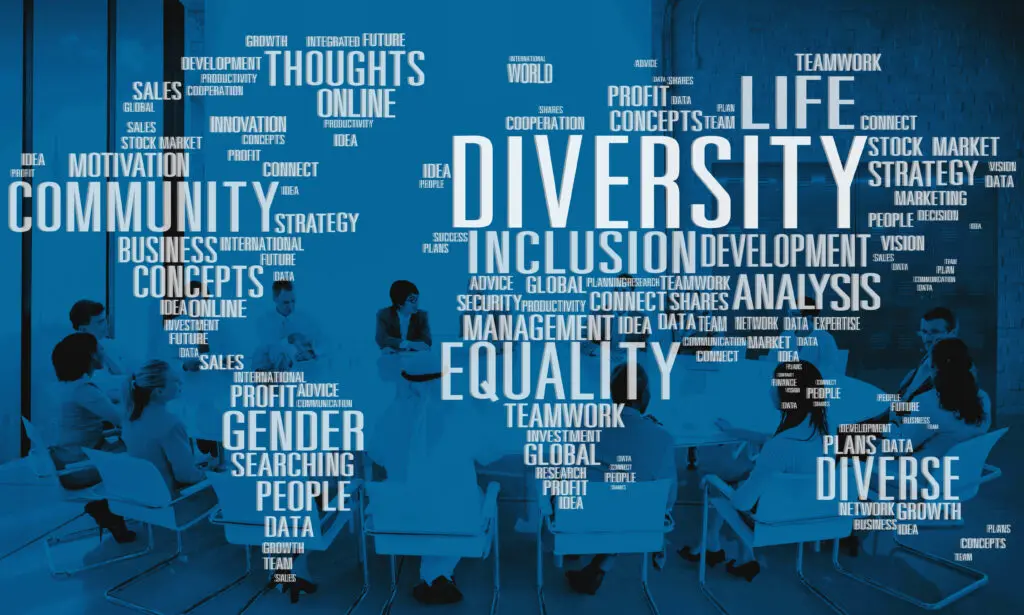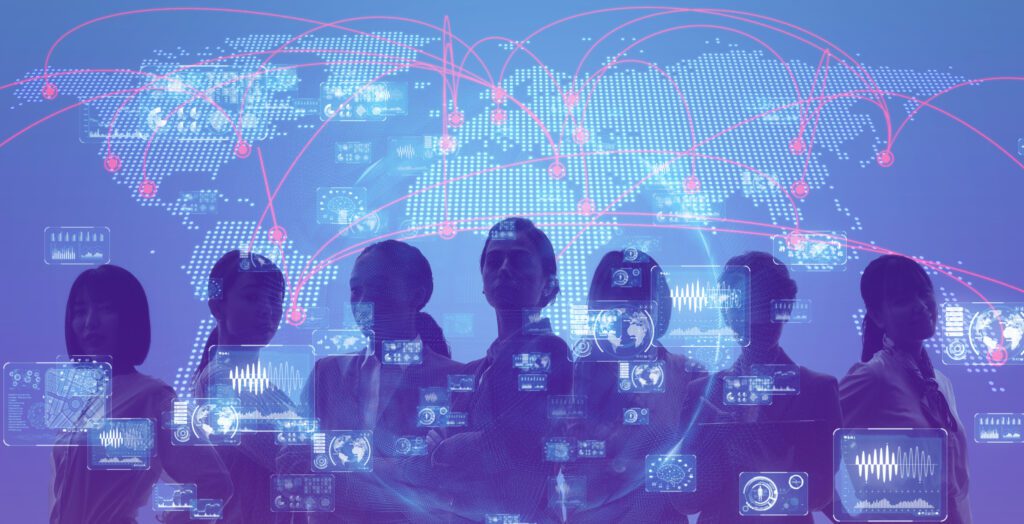IAC’s Response to the Attacks on DEI
A message to our members and DEI practitioners from the Inclusion Allies Coalition (IAC) Founders and Leadership
It is no secret to anyone that the DEI industry is under attack. A coordinated campaign has been underway now for the past three years to either legally ban or intimidate organizations from engaging in activities that in any way relate to DEI work. The first such measures were public attacks against notable DEI practitioners, including some of our IAC members. That has been followed by an almost relentless series of executive orders, policies and laws designed to stifle our ability to teach about even the basics of American History, especially as they apply to racism, sexism, homophobia, and transphobia.
Initially, Donald Trump and a band of right-wing extremists targeted trainings on racism and sexism, issuing an executive order to ban such trainings in the government. Subsequently, dozens of pieces of legislation have been proposed and, in some cases passed, to limit DEI in various stages of the education cycle, including over 60 in 2023 alone. A host of books have been banned, purportedly because they upset children and parents but, unsurprisingly there has been little attention on the fact that the banning of those books upset countless other parents and children as well!
Initial Attacks Were on Critical Race Theory (CRT)
At first these criticisms were centered around attacks on people supposedly teaching “Critical Race Theory,” defined by the NAACP Legal Defense Fund as “an academic and legal framework that denotes that systemic racism is part of American society — from education and housing to employment and healthcare.” However, almost none of the people or institutions attacked were teaching CRT, which has largely been limited to high level discussions in law schools. In fact, the effort was started by a right-wing extremist, Christopher Rufo, who bragged that he was intentionally using the term to “merge various race-related ideas to create a negative association.” Rufo has been quoted as saying, “We will eventually turn CRT toxic, as we put all the ‘various cultural insanities’ under that brand category. The goal is to have the public read something ‘crazy’ in the newspaper and immediately think ‘critical race theory’.”
Rufo was able to spread his weaponized use of the term through right-wing media, with posts in the New York Post and Wall Street Journal, among countless others, and through appearances on Laura Ingraham and Tucker Carlson and other extreme right media sources. Rufo was able to turn his campaign of distortion into a cause celeb for right wing politicians. Over the past couple of years, this campaign has moved from what Fortune Magazine described as “the fringe to the mainstream.” Governors in states like Florida, Texas, Utah, and Arkansas have been able to pass legislation that has enabled them to fire teachers and DEI staff, restrict college majors, ban textbooks, and censor teaching of related topics. When Disney publicly disagreed with Florida Governor DeSantis’ “anti-woke” legislation, he overturned decades of law to financially punish them. More recently, a slew of lawsuits has been filed by America First Legal, an organization founded by Stephen Miller, the architect of Trump’s Muslim ban and anti-immigrant policies, and Edward Blum, an anti-Diversity activist who has spent thirty years targeting various forms of the work, from PRIDE celebrations, to hiring practices, to training and education efforts. This strategy has been dubbed SLAPP (strategic lawsuits against public participation) and is designed to frighten companies into limiting their participation in DEI work by threatening controversial public confrontations that can impact the marketplace. Even though most of these suits will fail, the “noise” that they create along the way can still negatively impact companies and stir up controversy within the organizations themselves.
Currently, Attacks Have Gone Mainstream
Lately, these attacks have gone fully mainstream as billionaires like William Ackman and Elon Musk have joined the zealous throng and blamed DEI for everything from antisemitism on college campuses to the collapse of the Francis Scott Key Bridge in Baltimore. (Musk even described Baltimore Mayor Brandon Scott as the “DEI Mayor,” even though he was elected with over 70% of the vote! DEI, it seems, has become a new, [barely] coded replacement for the “N-word.”)
African American academics have been targeted through selective scans of their scholarly work. When the same rigor is applied to other academics (including, ironically, Ackman’s wife, Neri Oxman), similar issues have been uncovered, even though Black academics seem to be the only ones scanned, targeted, and held accountable. Regardless, the attacks continue relentlessly. Recently Dr. Sherita Goldmen, the VP and CDO of Johns Hopkins Medicine, was forced to step down from her role because she defined privilege as “a set of unearned benefits given to people who are in a specific social group,” in a hospital newsletter. No person and no institution, it seems, is immune from these hysterical charges of “wokeness,” or “DEI must DIE!”.
We must also, of course, acknowledge the role of the Supreme Court in undermining race-based solutions to past disparities by undermining the Voting Rights Act and outlawing Affirmative Action programs in colleges and universities.
The irony is, as is true for so many extreme political efforts of our time, the American public does not agree with this assessment. A 2023 Pew Research poll found that 56% of American workers say that focusing on DEI at work is a good thing, another 28% say that it is neither good nor bad, and only 16% said it was a bad thing. A poll by the National Parents Union found that more than 2/3 of parents polled encouraged the teaching of women’s history (73%), Native American and Indigenous history (72%), Black history (69%), Holocaust history (68%), and Latino/a & Hispanic history (66%) in schools.
Data Confirms Positive Impact on Workplace
The data that we have seen for years continues to confirm that DEI work has an overall positive impact on workplace environments. Various studies have shown that:
- Diverse teams generate more varied solutions to problems and make better decisions.
- Diverse teams are more creative and innovative.
- Companies with higher levels of diversity in leadership have higher EBIT (Earnings Before Income Tax) margins.
- Diversity among venture capital firms supports increased overall fund returns every year.
- DEIA helps attract and retain talent. Millennials and Gen-Z employees (who are fast approaching 75% of the workforce) believe that DEI initiatives are vital.
- Companies with high levels of racial and ethnic diversity are 35% more likely to report above-average financial returns. On top of that, companies in which the executive teams are diverse, as suggested by McKinsey, are 25% more likely to generate greater profits than companies that lack diversity within executive teams.
- Teams and companies that are diverse in terms of composition are 70% more likely to capture a new market than firms that are not diverse, according to research conducted by the Harvard Business Review.
- Diversity within leadership and management teams can lead to more and higher levels of innovation, which lead to improved financial performance, according to a study by BCG.
Impact on the DEI Industry

Despite the reality that most Americans support DEI, what can only be called a terror campaign against it is unfortunately having an impact. Numerous companies and schools have scaled back their diversity efforts, reduced or eliminated DEI staff, and generally toned down their DEI efforts. Even though many of the lawsuits are likely dead-on-arrival in the courts, many companies have determined that the controversy engendered by such suits, and often the requisite consumer backlash, makes it more advantageous to back off rather than challenge the vast disinformation conspiracy.
We know, from listening to you, our IAC members, that this has had an impact on your businesses, your livelihoods, and, in some cases, your sense of safety.
The murder of George Floyd on May 25, 2020, ignited a huge response throughout the world. Hundreds of companies took public positions in support of the Black Lives Matter movement, as well as other forms of DEI work. It seemed like a threshold had finally been reached in which support for DEI would be considered commonplace and expected. However, we forgot Newton’s Third Law of Physics; that “every action has an equal and opposite reaction.”
For those who have been doing this work for a long time, this is not a surprise. Dr King may have been right when he said, “the arc of the moral universe is long, but it bends toward justice,” but it is not a straight line. The history of DEI work in organizations and in society has often been “two steps forward, one step back.” Almost every historical breakthrough was followed by some retrenchment, although rarely with the kind of wholesale, public effort we have seen here.
So the Question Is, What Do We Do About It?

We will continue as an organization and as activists to fight these anti-DEI efforts in public forums and as individuals. As practitioners, and advocates we each have our own styles, methodologies, successes, and failures. The IAC founders and leaders are not in a position, nor do we want to be, to prescribe specific strategies or behaviors to everyone, because all of our circumstances have their own specific realities. We also have our own vulnerabilities and as such these will have various impacts on us emotionally, psychologically, and materially. We do however want to share some thoughts.
Start with the Right Mindset

For many of us this is a scary time. The fear might be a more generalized fear of the impact of this regression on society and our attempts to create a more inclusive world; or it might be more personally tied to how each of us sees the impact on our identity group, family or self; or it might be the financial realities of the impact on our businesses or families. The challenge is that fear creates reactivity, and at a time when we must be thoughtful, we can get caught up in our emotional reactions . We recommend that you, our members, slow the pace and remember, at the risk of sounding cliched, that this is a marathon, not a sprint. Watch out for times when that reactivity may lead you to be more interested in “being right” than “being effective.” As the great labor organizer Saul Alinsky used to teach, “We need to use our emotion to motivate us, but our minds to design strategy.”
If we can elevate ourselves somewhat from the fray, we can serve to bridge the gaps rather than just another player in the conflict.
Focus on the “Why”!

At a time when people get profoundly different messages depending upon what media they are exposed to, who they talk to, or what they see on the internet, be sure to be as clear as possible, focusing on what you are trying to accomplish (e.g. creating “a culture in our organization in which all people feel included, feel like their voice matters, and have the ability to function at the highest level and be successful”) and get people aligned on the result and less focused on whether or not they agree with your methodology. Opening that conversation may even give people an opportunity to give you suggestions as to an alternative way to get there. Strengthen your messaging and ensure it resonates authentically. People are generally much more inspired by building things rather than “fixing a problem.” What kind of culture are you trying to build?
Know Your Audience and Adjust Accordingly

There is no “one-size-fits-all” approach to this work. The differences in our environments will shape content, language, tonality, and process. The key is to match your work to the environment you are working with in a way that allows you to keep the conversation moving forward. What “that other consultant” or “that other organization” is doing may not be the best strategy for you and the situation you are in. Like the old saying goes, “When you go fishing, bait the hook with what the fish likes to eat, not what you like to eat!” This may feel challenging at times, especially when you have a particular approach that you are comfortable with, written a book about, and have even been “branded” with.
That doesn’t mean backing off the work that has to be done, but it may mean framing it differently, choosing language that calls people in rather than out, reminding people of the business case (even if for the 100th time!), etc. And it also means being willing to admit when things we have tried aren’t working and move on to others. This is a time to demonstrate agility!
The key is to focus on demonstrable results, to be sure that the strategies you are using work in your specific environment. Remember, the power of a transformational idea does not live in how it makes you feel when you say it, it lives in whether it actually creates change! The more you can establish measurable change that benefits the organization, the more likely people are to continue doing the work.
Remember, ultimately this is an “enrollment” conversation, especially now when many people are thinking, feeling, and saying things like, “This is all too controversial…just leave me out of it.” Even if we put the best systems in place, if people don’t have some buy-in they will find a way to bypass it. (How well do speed limits work in terms of slowing people down?) Bringing your own authenticity to the conversation; helping people frame what’s going on; bringing compassion and understanding to people as they struggle with this, are all ways we can get our internal and clients more engaged.
Be Conscious of Language

Like any industry, the DEI industry has developed a language of its own and that at times feel “jargony,” and can be off-putting and feel exclusive. The term DEI has become used as shorthand for a broad array of things that are generally seen as “that side” of the cultural divide. If you want to keep using it, understand that different people will hear it differently, unless you frame what you mean by it. Alternative language like “culture development”; “team development”; “inclusive leadership”, etc. may generate less resistance, but that ultimately is a decision that you will have to make based on your environment. Many, if not most, people don’t even know what DEI work is, except that they’ve heard it’s bad. Don’t leave it to the anti-DEI folks to define us and our work. Ask people, “When you use that term, do you mind telling me what you think it means?” Or “What is it about that work that concerns you?” This will give you a better understanding of what they are thinking underneath the surface, and an opportunity to address those concerns. And try, as much as possible, to reach as diverse a group of people as possible. We won’t change the system by only working with some people. If we want inclusion, we can only get it by being inclusive.
Keep Yourself Informed!

There is so much DEI related news coming at us; all of which impacts us. IAC will continue to do the best we can to keep people informed, but also take it upon yourself to understand the legal issues, the latest news that might impact people or organizations, the different points of view that people bring to the conversation, etc. If we understand the legal issues, for example, we might find that slightly changing our strategy, or the way we language our approach can keep us moving forward.
It is also critically important to try to understand the other point of view, from their point of view. The more we can see into the other’s world, the better we can devise strategies to reach them. That may mean reading other news sources, actively talking to people from “the other side of the conversation,” etc.
As DEI practitioners, we can be the catalyst for mutual understanding, even if not mutual agreement, and help “lower the temperature”, especially at a time when the media is driving all of this into a frenzy. Being the ones that bring equanimity to a conflict situation can establish the credibility to continue to make a difference in the present, but also leave you with the psychological capital to jump back in more strongly when the pendulum inevitably swings back in the other direction. The conflict around our work now is an emotional one, bringing rationality to it through data, research, etc., can help people think rather than react. On the other hand, jumping into the conflict can make you a part of the conflicted system and rob you of the ability to reach and work with everybody in it.
Be in Community

Now more than ever, it is important that we use our community for support. Welcome allyship, being careful not to set standards of perfection that end up frustrating or even turning off well-intentioned people. That doesn’t mean not giving feedback or coaching, but rather avoiding condemning people who want to be supportive because they are not doing it the way you would like them to. In these polarized times, people often make binary “for or against” decisions…we want them choosing “for” DEI!
Tap into professional associations or groups in which you can gain emotional support, like the IAC. Participating can provide an opportunity to share ideas and best practices, or just realize that you are not alone. Many of us are either lone operators, or work in very small teams, so these networks are essential, even if our approaches are different, we can still be working for the same end results!
Take Care of Yourself!

Finally, but perhaps most importantly, this is a time to take care of yourself. All of us have been on airplanes and watched the initial safety announcement in which the flight attendants remind us to “put on your mask first before helping others.” The same is true for us as practitioners. If we are feeling stressed, anxious, pressured and generally unwell, we have little to give to the work that we are doing. As the brilliant poet, philosopher Audre Lorde famously said, “Caring for myself is not self-indulgence, it is self-preservation and that is an act of political warfare.”
Eat well, exercise, take breaks, meditate (or learn to if you haven’t!) and discipline yourself to know when to pursue issues and when to step away. And try, as much as possible, to find the joy in being able to do something that has such a positive impact on people’s lives. We don’t have to be in suffering or martyrdom to do this work. In fact, our positive attitude makes it harder for people to stop us, and it makes it easier for us to keep going. We won’t win every battle, but we can keep winning some. And every one of them matters.
We are in a challenging phase right now, but the game is far from over, and it is our determination, our commitment, and our willingness to keep going that will help the pendulum swing back to the reality that all of humankind benefits from what we are doing. We are not defeated just because we have lost a few battles. As the Roman poet/philosopher Ennius once said, “The victor is not victorious if the vanquished does not consider (themselves) so.”
Sometimes the ultimate act of a hero or shero is to just show up tomorrow and do it again.
